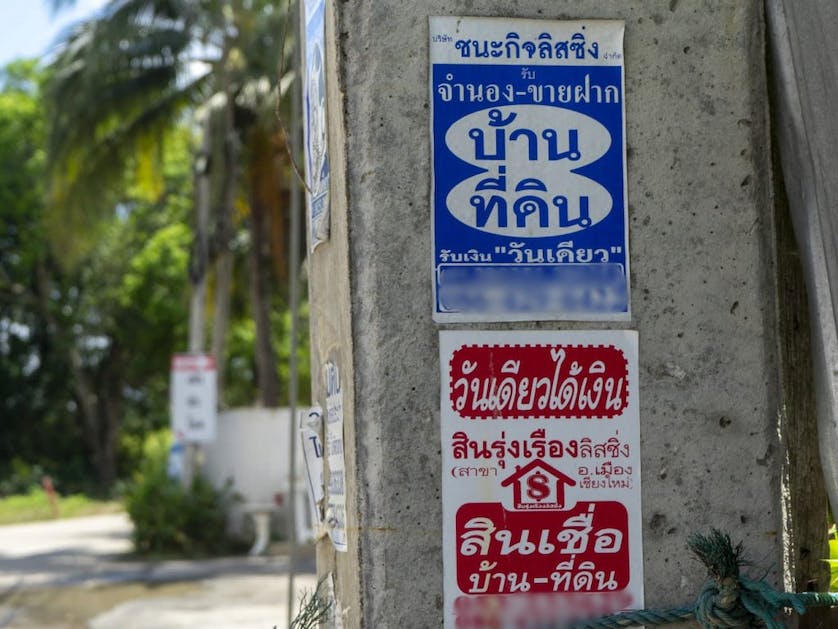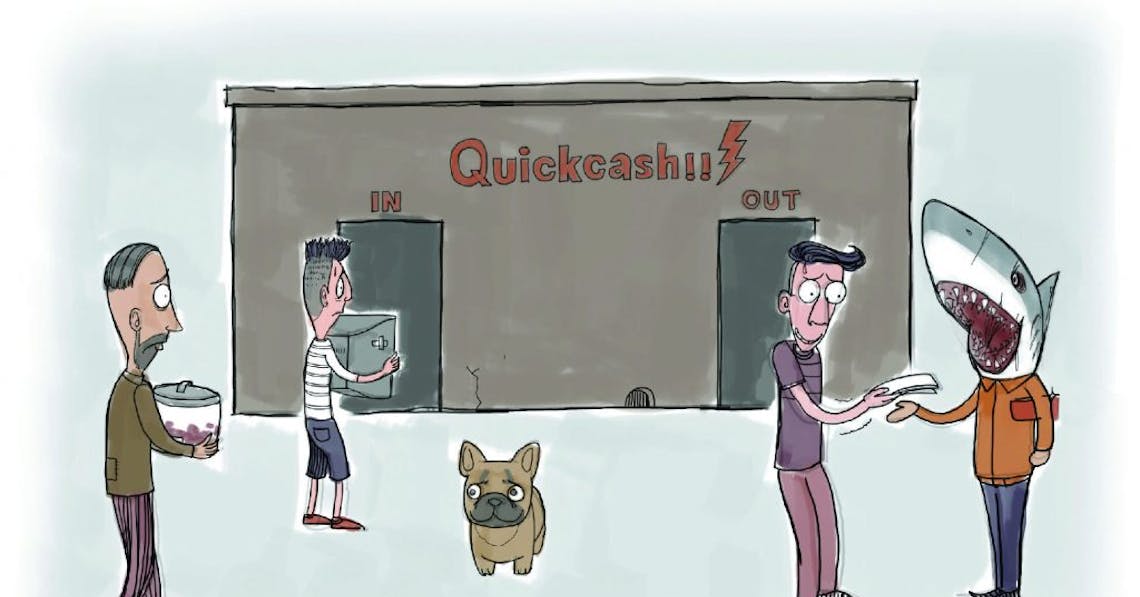“Thai people don’t plan to save, they only save what is left over of their income after expenditure,” said Prach Daipium Segment Team Head of Krung Thai Bank, explaining the typical Thai personal financial management. A report by the National Statistical Office of Thailand (NSO) revealed that the average national household debt in 2017 was over 170,000 baht. Puchapong Nodtaisong, director of the NSO stated that although household income is increasing, expenditure and debt is also increasing accordingly, the past ten years seeing a steady increase in household debt annually. A report by the Bank of Thailand showed that the household debt to GDP ratio had increased from 41% in 2003 to 60.3% in 2011, spiking over the next four years to 81.2% by the end of 2015.
“Debt levels rise and fall according to population and economic growth, as seen from the increasing numbers between 2003 to 2011. The dramatic hike from 2011 to 2015, however, is due to many factors such as the populist first car policy in 2011, the flood catastrophe of the same year, the government’s various agricultural promotions and incentives which have lured farmers into believing that there are profit potentials, and low interest rates,” stated the Bank of Thailand in a January 2018 report which showed a slight decrease this year in household debt, down to 78% of the GDP. In spite of this decrease, mounting debt, according to the Kasikorn Thai Research Centre, has swollen to over 12 trillion baht by the first quarter of this year, an increase of 5.2% from the same time last year. “Debt is an expense from future money and it becomes an issue when the actual money, by the time we receive it, is less than we expected or projected,” said Prach. For Chiang Mai, the average household debt is a little bit below the national average. “The round figure is at about 130,000 baht per household, which might not look that bad. But looking at the capability to pay back the debt, that is when the issue arises,” said Asst. Prof. Dr. Charuk Singhapreecha, Deputy Dean of the Faculty of Economics, Chiang Mai University. The average Chiang Mai household income in 2017, according to the NSO, is around 18,970 baht per month, which has increased by 26% from 2015. In spite of the increase, Chiang Mai province has the indignity of ranking the second to lowest in household income in Thailand, with Bangkok’s homes pulling in an average of 45,707 baht per month and Phuket’s families drawing in a respectable 39,593 baht monthly. “Economically, we are one of biggest cities in the country but the disparity comes from the fact that a great number of the upper class, those earning higher income, are outsiders,” said Dr. Charuk. “These people are either the investors, who have set up their businesses here and left it to their nominees to run, or visitors who are on and off residents, but not officially registered as residents. The majority of Chiang Mai people — if they have not left for higher paying jobs in others cities — are mainly working as employees or are in farming,” explained Dr. Charuk. It is interesting to note that while 60-70% of the population of Chiang Mai lives in the rural area, working mainly in farming, 67% of Chiang Mai’s Gross Provincial Product (GPP) comes from the service sector. The agricultural sector is only earning 22% of the GPP, according to Chiang Mai Province Office. “And most of the plants we do grow are not even in the top ten of Thailand’s lucrative agricultural crops,” said Dr. Charuk, with a shake of his head, likely referring to winter produce from our various mountain projects, boutique coffee crops and lamyai, which have yet to reach their full potential.
“Thai people who take on loans only care about how much money they are going to get, not how much they have to pay back”
“With a huge gap in income inequality, it’s easy for people to fall into debt while trying to climb up the social ladder,” said Dr. Charuk who shared his belief that around 60% of the population nationwide is at financial risk, estimating that the figure for Chiang Mai could be as high as 70%. “Chiang Mai is also geographically large and people are spread out far and wide, which means that population density in any area is low. Local economy thrives on density, the more people living in one area means more spending. That’s why Phuket’s economy is quite high,” said Dr. Charuk. On one hand farmers are suffering from a cycle of debt; borrowing money to start their farms, purchasing seeds or equipment in anticipation of harvest, eventually and sadly inevitably, struggling to break-even, let alone break free, due to unanticipated price drops from over supply. On the other hand, salaried employees, whose savings sit idle in banks at low interest, end up losing money in the long term due to the constant rise of inflation. “Everyone wants high profits and low risk,” said Prach, “but there is no such thing,” he insists, based on his decades’ experience in working as a banker. “One of the characteristics of Thai people is that we are not keen on research,” added Prach giving the example of teachers’ debt which made national headlines earlier this year. According to various reports, over 450,000 teachers nationwide are at risk of being declared bankrupt from owing a combined amount of 400 billion baht to The Government Savings Bank’s Teacher Loan Programme. The issue sparked national attention when disputes occurred as many debtors rallied together, refusing to pay back money borrowed, claiming the interest rate to be unfair. “Everything is on the paper when you sign it,” said Prach. “Speaking from my personal experience, most Thai people who take on loans only care about how much money they are going to get, not how much they have to pay back. When they start to drown under the interest rates instead of doing their research and restructuring their debt, coming up with a plan, they instead continue the cycle of borrowing from one source to pay another. Many don’t realise that each loan should have its own role; you take on hire purchase for a car, you should pay for the car; you take on a mortgage, you should pay for the house; you take on a business loan, you invest in the business. Yet so many people invest their house loans into their businesses, their credit cards are used for their cars, their refinance on their shopping and personal items, ending in maximising their overdraft and not knowing the exact rates of interest that will come knocking at their door,” said Prach. Over 76% of debt is on household loans, according to the NSO, of which the majority is spent on consumption and properties. “Household loans are a consumer case,” said an independent lawyer who wishes to remain anonymous for this article. “The existing law requires the financial institutions sue the defaulters after three months of an overdue payment,” explained the lawyer, who said that in the past the law stipulated one year for the defaulters to pay up. This was changed under the Debt Collection Act of 2015 which saw a major revamp on rules which included banning military and police officials from collecting debt and setting time period for debt collectors to contact those in default, etc. It has been reported that the number of cases prosecuted on defaulted loans has tripled since the application of the law to over 2,000 cases nationwide.

